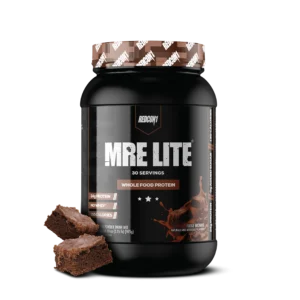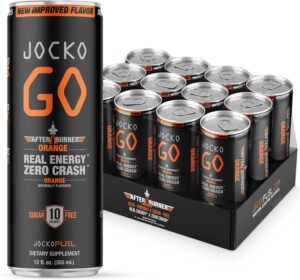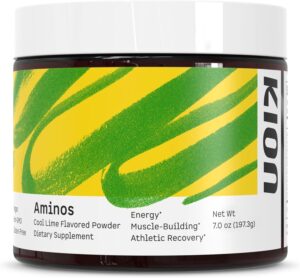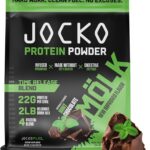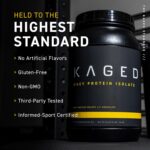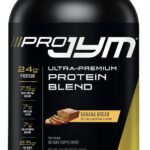
The Importance of Pre and Post-Workout Nutrition

So what should you eat before and after your workouts? Well, the following content outlines the importance of pre and post-workout nutrition. A pre-workout meal can help lower protein breakdown rates and increase muscle protein synthesis. Consuming protein, amino acids, and carbs before exercise has been shown to have various benefits, such as delaying fatigue and providing energy.
Post-workout carbohydrates stimulate protein synthesis better than fat, and protein intake immediately after exercise is crucial for muscle recovery and synthesis. Overall, understanding what to eat before and after every workout can significantly impact your performance, recovery, and results. Check out the video by Gravity Transformation – Fat Loss Experts for more information on creating the best pre and post-workout meals.
Importance of Pre and Post-Workout Nutrition
Pre and post-workout nutrition play a crucial role in optimizing performance and achieving desired results from exercise. The timing and composition of meals before and after a workout can have a significant impact on muscle protein breakdown rates and synthesis, energy levels, fatigue, and recovery. By paying attention to what you eat and when you eat it, you can maximize the benefits of your workout routine.
Lower protein breakdown and increase muscle protein synthesis
During a workout, muscle protein breakdown rates increase. To counteract this and promote muscle growth, it is essential to keep protein breakdown rates lower and protein synthesis rates higher. Amino acids, which are the building blocks of muscles, play a vital role in increasing muscle protein synthesis. Without an adequate supply of amino acids in the bloodstream before a workout, protein breakdown rates remain elevated, leading to a catabolic state where the body breaks down muscle. Therefore, consuming protein before a workout is crucial to decreasing muscle breakdown and promoting muscle growth.
Benefits of protein, amino acids, and carbs before exercise
Research has shown different results regarding the impact of protein intake before a workout on muscle growth. While some studies suggest that pre-workout protein consumption does not enhance muscle growth, others indicate that having pre-workout amino acids and carbs can provide even more benefits for the muscles than consuming them post-workout. The varying results depend on the individual’s protein intake throughout the day.
If you have already consumed enough protein in a meal within three to four hours before your workout, additional protein intake immediately before a workout may not significantly affect muscle breakdown rates. However, if you haven’t consumed protein within that timeframe, consuming 20 to 40 grams of protein before a workout can contribute to decreasing muscle breakdown rates and promoting muscle protein synthesis.
Carbs to delay fatigue and provide energy
Carbohydrates play a crucial role in providing energy during workouts. By replenishing the glucose stored in the muscles and liver before a workout, you can delay fatigue and enhance your performance. Carbs act as a fuel source for the body during exercise, allowing you to lift heavier weights and perform more repetitions. Research comparing a high-carb diet to a very low-carb diet showed that the high-carb diet group maintained their strength better, recovered faster, and had a more anabolic muscle-building state. Therefore, consuming carbohydrates before a workout can provide additional fuel for your muscles and contribute to muscle growth during strength training and prevent muscle loss during cutting phases.
Post-workout carbs stimulate protein synthesis better than fat
After a workout, the body is in a state of increased sensitivity to nutrients, especially protein. Consuming carbohydrates post-workout stimulates protein synthesis better than consuming fat. Carbohydrates replenish glycogen stores, which aids in muscle recovery and adaptation. By providing a quick source of energy to the muscles, post-workout carbs optimize glycogen resynthesis and ensure proper recovery. It is recommended to consume a carbohydrate supplement immediately after competition or training, especially when the workout has been intense and depletes glycogen stores significantly. However, adding excess fat to post-workout meals does not have a significant impact on muscle glycogen resynthesis or glucose tolerance.
Effects of fasted training and compensation
Fasted training has gained popularity as a method for maximizing fat burning during workouts. While some studies suggest that fasted workouts can help burn more fat during the exercise session, other studies indicate that the body compensates for the initial fat burn by burning more carbs throughout the day. The body’s response to fasted training varies among individuals. While some may benefit from increased fat burning, others may experience higher protein breakdown rates and potential muscle loss. It is important to consider individual preferences and goals when deciding whether to engage in fasted training and to take into account potential compensatory effects.
Enhanced resistance exercise performance with caffeine
Caffeine-containing energy drinks have been shown to enhance resistance exercise performance. Caffeine acts as a stimulant, increasing alertness and reducing perceived fatigue during workouts. By consuming caffeine before a workout, individuals can experience improved focus, energy levels, and overall endurance. However, it is important to note that individual responses to caffeine may vary, and excessive consumption can lead to negative side effects such as jitters, increased heart rate, and disrupted sleep patterns. It is recommended to start with lower doses of caffeine and assess personal tolerance.
Stimulating muscle protein synthesis with leucine
Leucine, a branched-chain amino acid, plays a significant role in stimulating muscle protein synthesis. It acts as a signal to promote the synthesis of new muscle proteins. Including leucine-rich sources of protein in pre and post-workout meals can enhance the anabolic response and contribute to muscle growth. Good sources of leucine include whey protein, eggs, chicken breast, and fish. By consuming these foods before and after a workout, you can ensure a sufficient supply of leucine to support muscle protein synthesis and recovery.
Anabolic effects of immediate post-exercise protein intake
Consuming protein immediately after exercise has been shown to have more anabolic effects on muscle protein synthesis compared to delayed protein intake. By providing the body with the necessary amino acids to rebuild and repair muscle tissue, post-workout protein intake optimizes recovery and promotes muscle growth. Fast-digesting protein sources, such as whey protein shakes, are recommended for post-workout consumption. These protein sources are quickly absorbed by the body, ensuring a rapid supply of amino acids to the muscles.
Timing of pre and post-exercise meals
The timing of pre and post-exercise meals is crucial for optimizing performance and recovery. It is recommended to consume a meal containing protein and carbs within three to four hours before a workout. This allows for adequate digestion and absorption of nutrients, providing a steady supply of energy during exercise. For post-workout nutrition, it is important to consume protein and carbs as soon as possible after the workout, preferably within the first two hours. This timing ensures the body receives the necessary nutrients for muscle recovery and glycogen resynthesis.
Insulin responses and plasma concentrations
Insulin responses in the body are correlated with plasma concentrations of specific amino acids, such as leucine, phenylalanine, and tyrosine. Carbohydrate intake can elevate insulin concentrations and promote an anabolic state. Consuming carbohydrates alongside protein before and after a workout can enhance insulin responses and contribute to muscle protein synthesis. The combination of protein and carbs provides the body with an optimal nutrient balance for muscle recovery and growth.
Replenishing carbs after competition or training
After intense competition or training sessions that deplete glycogen stores significantly, it is crucial to replenish carbohydrates to support optimal recovery. Consuming a carbohydrate supplement containing more than 1.0g per kg body weight immediately after exercise ensures rapid glycogen resynthesis. This replenishment aids in muscle recovery and prepares the body for subsequent workouts. By restoring glycogen levels quickly, athletes can maintain their energy levels and performance.
Effects of excess fat on muscle glycogen resynthesis
Consuming excess fat in post-workout meals does not have a significant impact on muscle glycogen resynthesis or glucose tolerance the next day. While fat intake does not directly affect glycogen replenishment, it is important to consume fat in moderation for overall health and balanced nutrition. Prioritizing carbohydrate and protein intake after a workout is crucial for optimal recovery and performance.
Performance improvement with creatine and resistance training
Creatine supplementation combined with resistance training has been shown to improve performance and muscle growth. Studies have demonstrated an average increase of 8% to 14% in performance, measured in terms of maximum strength (1RM) or endurance strength. Creatine provides the muscles with additional energy during high-intensity exercises, leading to enhanced performance and improved muscle adaptation. When combined with effective resistance training, creatine supplementation can significantly improve overall results.
In conclusion, pre and post-workout nutrition are vital components of optimizing performance, muscle growth, and recovery. Consuming protein before a workout helps decrease muscle breakdown and increase synthesis. The impact of pre-workout protein intake depends on previous protein intake throughout the day. Carbohydrates before a workout provide fuel and enhance performance, with high glycemic carbs recommended for intense workouts and low glycemic carbs for endurance workouts. Splitting carbohydrate intake between pre and post-workout meals can be effective for muscle building. Fasted training may burn more fat during the workout, but the body compensates by burning more carbs throughout the day. Post-workout protein intake within a few hours is crucial for muscle recovery and synthesis. Fast-digesting protein sources and carb replenishment aid in muscle recovery and glycogen resynthesis. While fat intake after a workout is not necessary, it can be consumed in moderation. Additionally, creatine supplementation combined with resistance training can significantly improve performance and muscle growth. By understanding and implementing proper pre and post-workout nutrition strategies, individuals can maximize their workout results and achieve their fitness goals.













